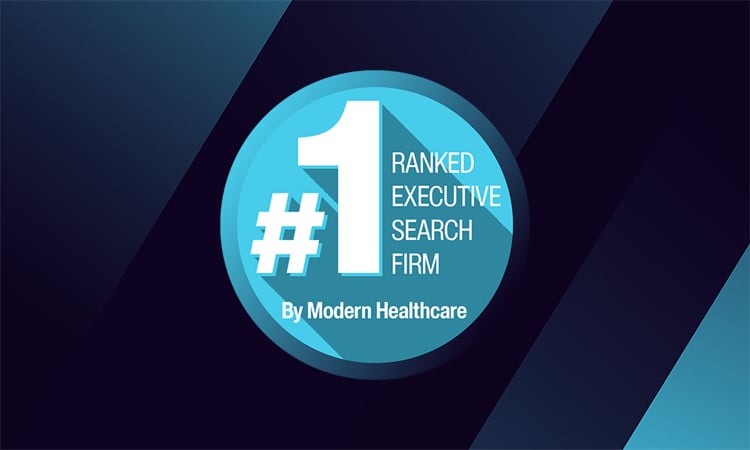
The Importance of Diversity in Healthcare Leadership: Driving Better Patient Outcomes
Healthcare is one of the most dynamic and people-centered industries, yet diversity within its leadership ranks often falls short of reflecting the populations it serves. With an increasingly diverse patient demographic, ensuring diversity and inclusion in healthcare leadership is not just an ethical priority—it’s a strategic imperative driving better patient outcomes.
This guide explores the important role of diversity and inclusion in the workplace, particularly in healthcare leadership. We’ll uncover the tangible benefits of diversity in the workplace, discuss how inclusive practices can transform organizations, and examine why empathy is a vital tool for healthcare leaders. By the end, you’ll understand why diverse leadership is pivotal for building a healthcare system that prioritizes equity, empathy, and excellence.
Diversity and Inclusion in the Workplace
Diversity and inclusion are often discussed together, but it’s important to distinguish between the two. Diversity refers to the representation of different groups—including race, gender, age, sexual orientation, cultural background, and experience—within a workforce. Inclusion, on the other hand, is about creating an environment where those differences are not only acknowledged but also valued and leveraged.
When applied to healthcare leadership, this concept takes on a new urgency. Leaders in healthcare set the tone for organizational culture and strategy, which directly impacts both staff morale and patient care. Yet, many organizations still struggle to create leadership teams that genuinely reflect the communities they serve.
Why Healthcare Leadership Lacks Diversity
A 2021 report by the American Hospital Association revealed that while minorities represent 40% of the nation’s patient population, they only hold 15% of executive leadership roles in hospitals. The reasons for this gap are multifaceted and include:
- Pipeline Challenges – Limited mentorship and promotion opportunities for underrepresented groups.
- Implicit Bias – Systemic barriers that favor candidates from dominant groups.
- Lack of Standardized Practices – Hiring processes that don’t prioritize diversity and inclusion policies.
The solution lies in intentional and sustained strategies that foster both diversity and inclusion in the workplace.
Understanding the Benefits of Diversity in the Workplace
1. Enhancing Patient Care
Healthcare organizations with diverse leadership better understand and address community needs. Leaders with varied backgrounds offer different perspectives, leading to more culturally sensitive patient care. For instance, diverse teams can advocate for language support services or culturally appropriate treatment, enhancing patient experience. A study by the National Academy of Medicine found that racially and ethnically concordant care results in greater patient satisfaction and better health outcomes.
2. Fostering Innovation
When diverse ideas are introduced, creativity flourishes. Leaders from various backgrounds challenge conventional thinking, sparking innovation. This is critical in healthcare, where breakthroughs are essential—be it AI diagnostics or new patient engagement models. For example, a diverse team might create a telemedicine platform for underserved rural areas, addressing needs overlooked by more uniform groups.
3. Strengthening Organizational Performance
The commercial benefits of diversity in the workplace cannot be underestimated. According to a McKinsey study, companies with ethnically diverse executive teams are 36% more likely to outperform their peers. Diversity at the top fosters a trickle-down effect—improving team dynamics, collaboration, and decision-making throughout the organization.
4. Building Patient Trust and Loyalty
Representation matters, especially in healthcare. Patients are more likely to trust and engage with healthcare providers who understand their culture, values, and lived experiences. Diverse leadership sends a powerful message to communities. It signals a commitment to inclusivity, which in turn strengthens the provider-patient bond.

How Inclusive Leadership Can Transform Healthcare
It’s not enough to recruit diverse talent; healthcare organizations must foster an inclusive culture. Inclusive leadership ensures that every voice is heard and respected. Leaders must go beyond representation and take actionable steps, including:
- Mentorship Programs: Pair emerging talent from underrepresented groups with seasoned mentors to guide career progression.
- Bias Training: Provide regular training to healthcare staff and executives to recognize and mitigate unconscious biases.
- Flexible Hiring Policies: Establish hiring practices that prioritize equity and cast a wider net for talent.
- Set Measurable Goals: Commit to goals on diversity in the workplace, track progress, and celebrate achievements.
When inclusivity becomes part of the organizational DNA, it not only benefits the staff but also ensures healthcare delivery is equitable and effective for all patients.
How Is Empathy Beneficial in Healthcare Leadership?
Leadership in healthcare goes beyond managing operations; it requires a profound commitment to understanding and addressing the human side of care. This is where empathy—a skill that’s often underappreciated in traditional leadership models—shines.
Creating Connection Between Leaders and Teams
Empathy allows leaders to bridge gaps with their employees. Healthcare workers are often overworked, and burnout is a prevalent issue. An empathetic leader understands these challenges, listens to their team, and implements meaningful solutions like flexible scheduling or mental health support systems.
Improving Patient Outcomes
Empathetic leaders have a greater appreciation for patient needs, which fosters stronger patient-centered strategies. For example, an empathetic leader may recognize gaps in post-treatment follow-ups and implement a program to ensure patients receive continued care after being discharged.
Building Inclusive Work Cultures
Cultivating empathy helps leaders better understand the challenges faced by underrepresented groups within their teams. This understanding fuels more informed decisions that promote equity and inclusion, such as creating mentorship programs for minority employees or addressing pay gaps.
Harnessing empathy is a leadership superpower—it humanizes healthcare while driving practical results.
Strengthen Healthcare Through Diverse and Empathetic Leadership
Diversity and inclusion in the workplace, particularly in healthcare, are not just ideals—they’re imperatives. Diverse leadership teams foster innovation, elevate patient care, and build stronger, more inclusive organizations. Combined with empathetic leadership, these practices create an environment where both staff and patients can thrive.
If you’re a healthcare leader looking to drive meaningful change and foster an inclusive workforce, now is the time to act. Diversity is no longer a “nice-to-have”; it’s a crucial driver of better patient outcomes, innovation, and organizational success.
Start by evaluating your organization’s diversity and inclusion practices today. By investing in these key areas, you’re not just shaping the future of healthcare—you’re building a better future for all.
Ready to take the next step in your leadership career? Turn to B.E. Smith. As healthcare’s number one executive search firm, we connect driven leaders with exceptional opportunities across a wide range of specialties nationwide.


